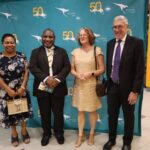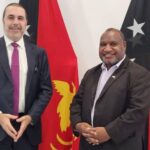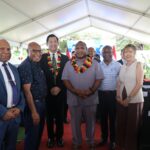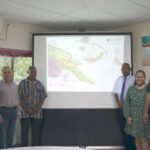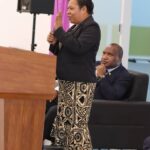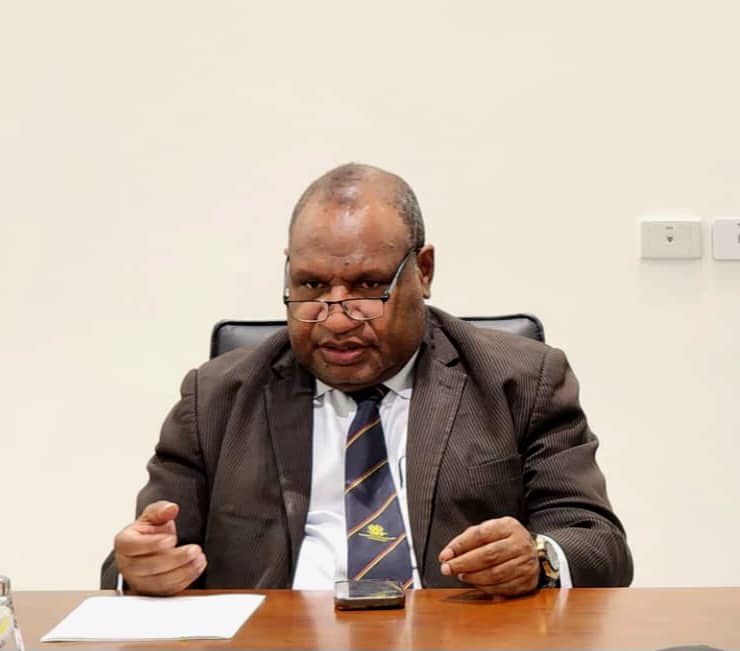Prime Minister James Marape today urged Papua New Guineans to draw inspiration from South Korea’s extraordinary journey out of poverty following the devastation of the Korean War (1950-1953), highlighting their rise to global economic prominence as a testament to hard work and determination.
“South Korea, a nation ravaged by war and with virtually no natural resources, rebuilt itself through sheer commitment to hard work and a strong work ethic. From a GDP per capita of just USD $63 in 1953, they now boast over USD $33,000 per capita as of 2023,” said Prime Minister Marape.
“Their transformation is a powerful example of what a nation can achieve when its people and leaders focus on productivity and innovation rather than dependence on government handouts.”
The Prime Minister contrasted South Korea’s rapid economic growth with Papua New Guinea’s trajectory. “In 1975, when Papua New Guinea gained independence, our GDP per capita was USD $521—significantly higher than South Korea’s $252 at the time. Yet today, South Korea’s GDP per capita has skyrocketed to over $33,000, while PNG’s stands at less than $3,000. This stark difference is a wake-up call for us to rethink our priorities and embrace the values of hard work and enterprise.”
Prime Minister Marape drew attention to the similarities in land size, noting, “South Korea’s landmass, at 102,000 square kilometres, is only slightly larger than our Western Province at 98,000 square kilometers. Despite having limited arable land and only nine months of planting and harvest annually, their people turned poverty into prosperity through dedication, effective policies, and a focus on manufacturing and technology.”
The Prime Minister called on Papua New Guineans to make better use of their land and resources, stressing the significance of land ownership as a foundation for self-reliance. “One of the greatest legacies of our independence in 1975 was ensuring that land remained in the hands of traditional landowners. From your land, you can become masters of your destiny. Let’s stop talking and start building businesses for our children,” he said.
He commended young Papua New Guineans who are already demonstrating entrepreneurial spirit by creating businesses, exporting local products, and adding value to PNG’s resources without relying on government support. “These young entrepreneurs are proving what is possible with dedication and action. They are bringing foreign currency into PNG and showing us all the way forward,” he said.
Addressing the ambitious goal of creating one million jobs under the Medium-Term Development Plan 4 (MTDP 4), Prime Minister Marape outlined a broader definition of employment. “A job is not just a 9-to-5 salaried position. It is any productive activity that earns income to support individuals and families. Achieving this goal requires empowering landowning families to engage in agriculture, forestry, fisheries, tourism, and SMEs.”
The Prime Minister emphasised that the government will continue to refine policies to support productive Papua New Guineans. “We will revisit SME development, tax regimes, land accessibility, banking, and market opportunities to foster growth. But the responsibility also lies with our people to work hard and maximise these opportunities,” he said.
Prime Minister Marape closed with a call for unity and action. “If South Korea could transform itself with no natural resources and the scars of war, we can do it too. What we need are more doers and fewer talkers. Let politicians talk, but let the rest of us work. Together, we can build a prosperous Papua New Guinea where every family is financially productive and self-reliant.”
He added, “God has blessed us with land, brains, hands, and feet. Let us use them to work hard and create a brighter future. Prosperity will come when we embrace the ethic of hard work, just as South Korea did.”


